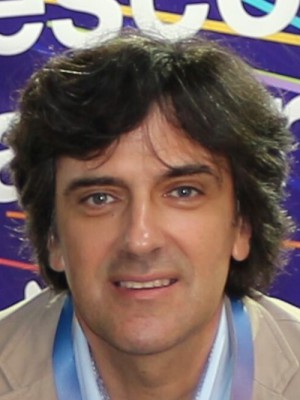abstract
This work aims to evaluate the influence of two starch-based materials (B16 and B20) on the moisture sorption isotherms, determined at 30, 40, and 50 degrees C, where B16 contains 5% (w/w) more starch than B20. Thermodynamic functions (differential enthalpy (Delta H-dif), differential entropy (Delta S-dif), integral enthalpy (Delta h(int)), integral entropy (Delta S-int), free Gibbs energy (Delta G), and spreading pressure (phi)) were used to understand the water-binding behaviors and the energy requirements to remove the moisture content from the surface of these materials. The moisture sorption isotherms exhibited type III behavior, and the Guggenheim-Anderson-de Boer (GAB) model was the most suitable to fit the experimental moisture adsorption data. The adsorption isotherms of microparticles were enthalpy-controlled, with isokinetic temperature values of 221.45 and 279.77 K for B16 and B20, respectively, being higher than the harmonic mean temperature (312.94 K). The values of Delta G were positive (45.274 and 44.307 kJmol(-1) for B16 and B20, respectively), indicating a non-spontaneous process. The spreading pressure values increased with increasing water activity (aw) for all isotherms. Higher values of Delta H-dif and Delta S-dif obtained from B16 confirmed its higher number of sorption sites available for binding with water molecules when compared to B20, making it less suitable for application in the food packaging industry.
keywords
ENTHALPY-ENTROPY COMPENSATION; STARCH; MICROPARTICLES; EQUILIBRIUM; ADSORPTION; POWDERS; FILMS; SEED
subject category
Polymer Science
authors
Tavares, L; Sousa, LR; da Silva, SM; Lima, PS; Oliveira, JM
our authors
Projects
Biobased and Biodegradable Composites (B2-Solutions)
CICECO - Aveiro Institute of Materials (UIDB/50011/2020)
CICECO - Aveiro Institute of Materials (UIDP/50011/2020)
Associated Laboratory CICECO-Aveiro Institute of Materials (LA/P/0006/2020)
acknowledgements
This work was financially supported by the project POCI-01-0247-FEDER-048505 through national funds and the co-funding by FEDER, within the PT2020 Partnership Agreement and Compete 2020 programs. This work was developed within the scope of the project CICECO-Aveiro Institute of Materials, UIDB/50011/2020, UIDP/50011/2020 & LA/P/0006/2020, financed by national funds through the FCT/MCTES (PIDDAC). The project was also supported within the scope of TEMA-Center for MechanicalT and Automation-by the projects UIDB/00481/2020 and UIDP/00481/2020-FCT-Fundacao para a Ciencia e a Tecnologia; and CENTRO-01-0145-FEDER-022083-Centro Portugal Regional Operational Programme (Centro2020), under the PORTUGAL 2020 Partnership Agreement, through the European Regional Development Fund.




